Archive on 4

A look back at programmes and recordings from the BBC archives
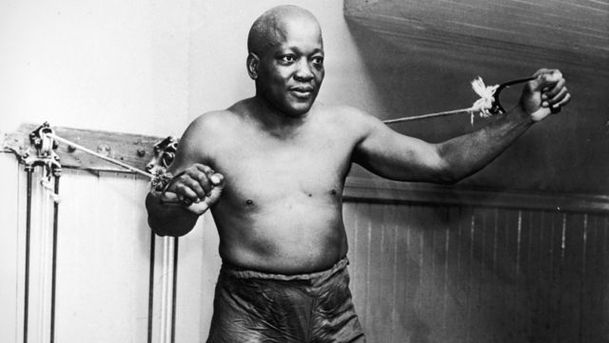
Archive on 4 - 100 Years After Jack Johnson: Boxing and Black Male Identity
Gary Younge explores how boxers Jack Johnson, Joe Louis, Muhammad Ali and Mike Tyson have shaped attitudes to black masculinity over the past 100 years.
Details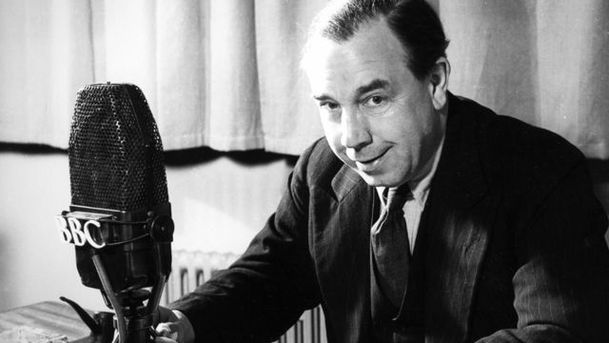
Archive on 4 - 13/11/2010
Archive on Four explores the World War Two broadcasts of JB Priestley, the 'voice of Britain' during the darkest days of the war, and asks why they came to an end.
Details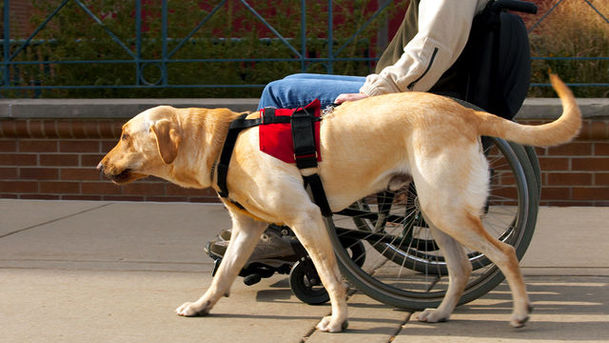
Archive on 4 - A Dog's Life
BBC Disability Affairs Correspondent Peter White examines the changing role of the working dog through extensive and sometimes previously unbroadcast archive.
Details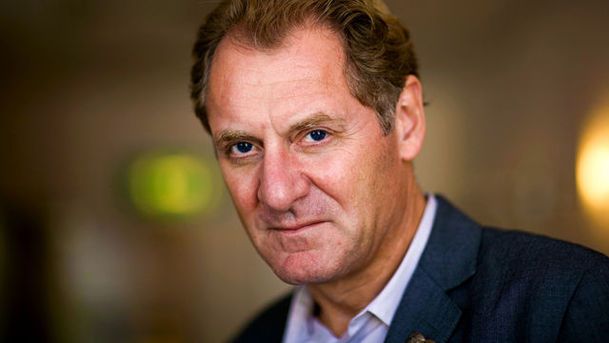
Archive on 4 - A Laureate's Legacy - The Poetry Archive
Andrew Motion explores and tells the story of the proudest legacy of his time as Poet Laureate, The Poetry Archive.
Details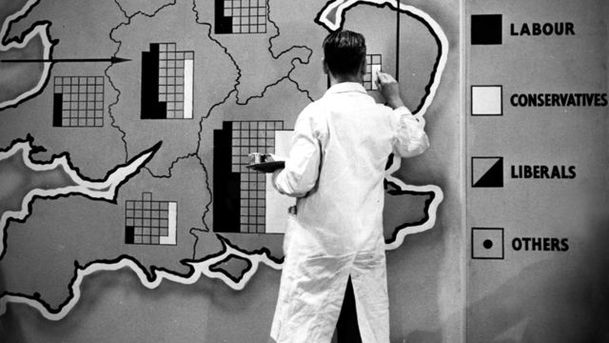
Archive on 4 - A Night to Remember
Veteran political journalist Anthony Howard celebrates 60 years of election results broadcasting on TV with a light-hearted look back at the drama, characters and cock-ups.
Details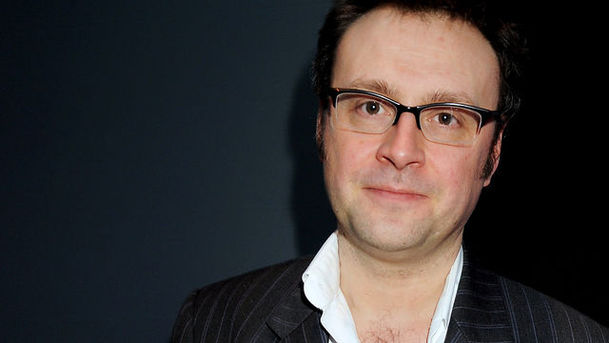
Archive on 4 - A Strong Song Tows Us - Another History of English Poetry
Lee Hall examines an alternative poetry tradition as the preserve of ordinary working people, and explores the colourful history of the north east's contribution to English poetry.
Details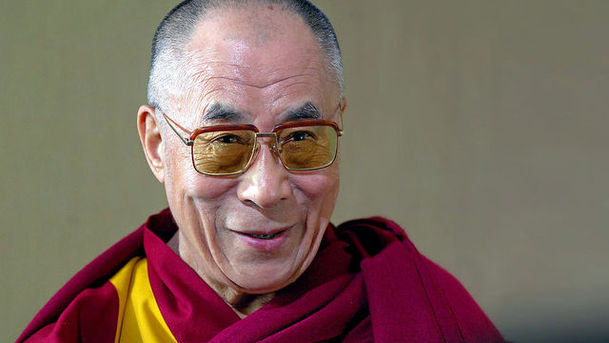
Archive on 4 - A Tibetan Odyssey: 50 Years in Exile
Isabel Hilton hears the stories of Tibetan communities in exile, including refugees in India and Britain. The Dalai Lama and refugees discuss their hopes for the future.
Details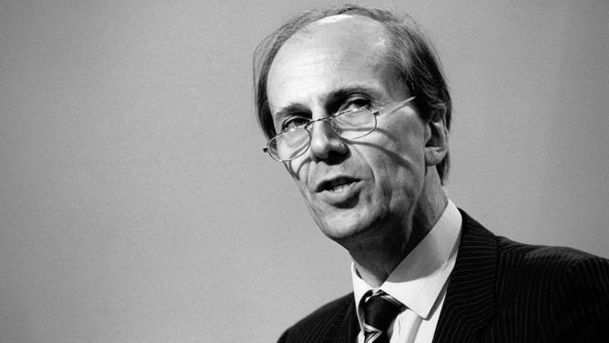
Archive on 4 - A Working-Class Tory Is Something To Be
David Davis MP explores the history of the working-class Tories: from the Victorian trade union leader who stood as a Tory candidate to Norman Tebbit in the 1980s, and on to today.
Details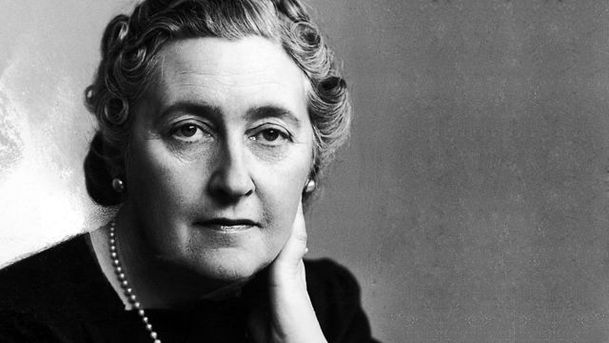
Archive on 4 - Agatha Christie's Life in Her Words
Crime writer Val McDermid listens to recordings made by Agatha Christie which have never before been broadcast and discusses their significance with a panel of guests.
Details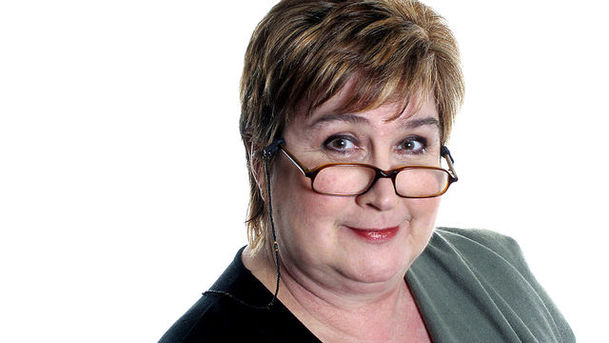
Archive on 4 - Agony
Jenni Murray a presents history of personal advice, from the mythical, kindly agony aunts of women's magazines to the public confessional of the radio phone-in.
Details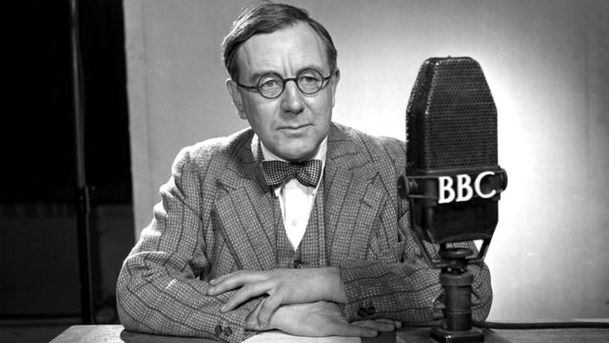
Archive on 4 - AJP at the BBC
Joe Queenan recalls the long and turbulent relationship between the BBC and the first television don, historian AJP Taylor.
Details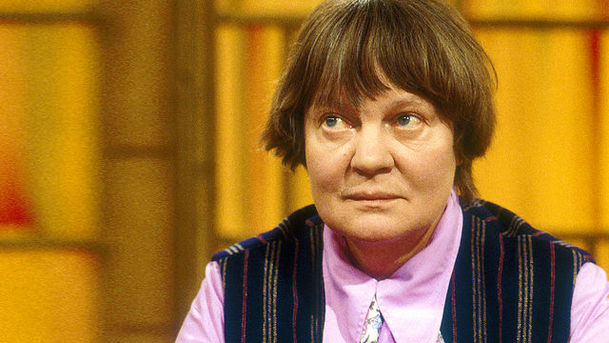
Archive on 4 - An Unofficial Iris
An Unofficial Iris: Bidisha revisits the life and work of novelist Iris Murdoch, whose image has been complicated by her husband's memoirs and a film adaptation.
Details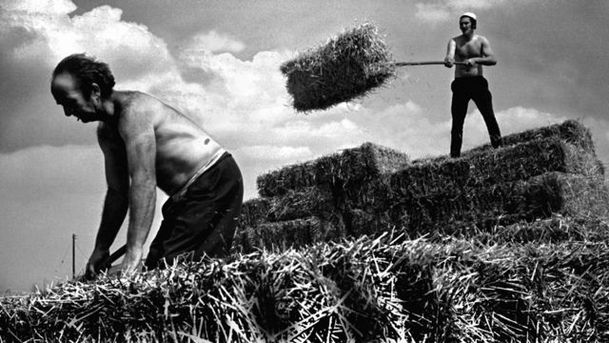
Archive on 4 - Ask the Fellows That Cut the Hay
Alan Dein goes to Blaxhall in Suffolk to celebrate George Ewart Evans, who put the village on the map and created a tradition of oral history in the UK, recording fireside chats.
Details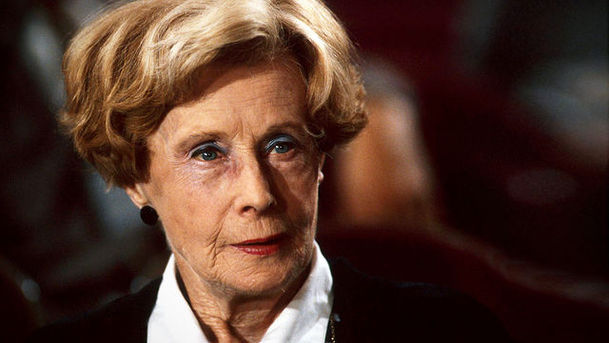
Archive on 4 - Barbara
Barbara Castle - the Red Queen, clever, sexy and single-minded she was the most important female politician the Labour party has produced. Anne Perkins celebrates her centenary.
Details
Archive on 4 - Beat Mining with the Vinyl Hoover
Broadcaster Toby Amies digs into the archives to discover the significance of old vinyl and how samples from records bought at car boot sales can provide the basis for new hits.
Details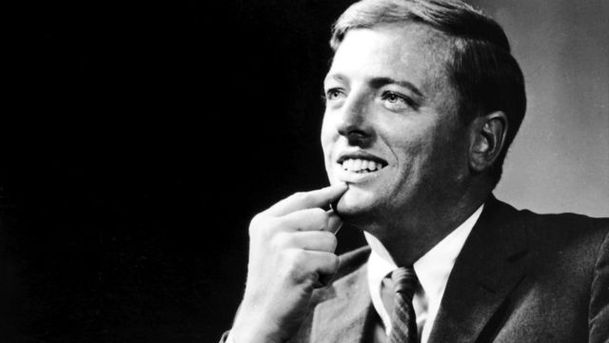
Archive on 4 - Bill Buckley - Mr Right
Michael Portillo presents some of conservative writer, intellectual and wit William F Buckley's most glittering exchanges with the leading politicians and personalities of his day.
Details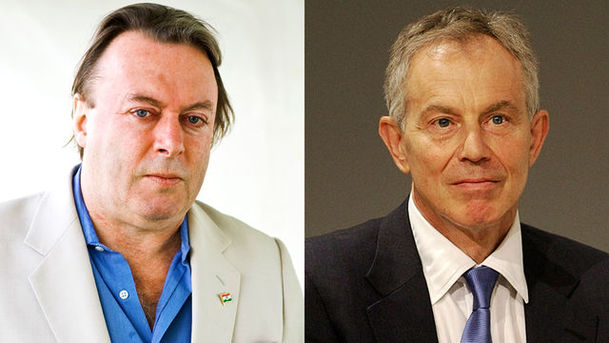
Archive on 4 - Blair versus Hitchens: The Religion Debate
In the Munk Debate on Religion recorded in Toronto, Tony Blair and Christopher Hitchens present their views on whether religion is a force for good in the world.
Details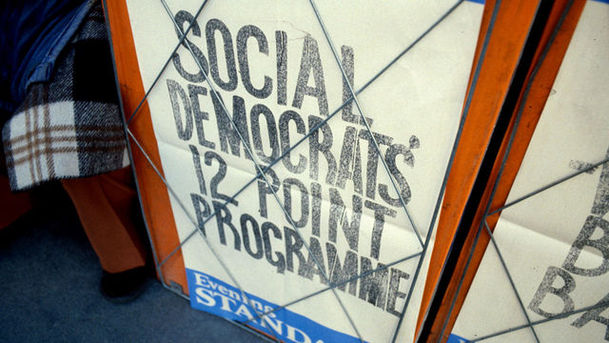
Archive on 4 - Breaking the Mould
Shaun Ley recalls the rise and fall of the SDP. The party never made the breakthrough, but did it change British politics? Is the SDP's main legacy its impact on other parties?
Details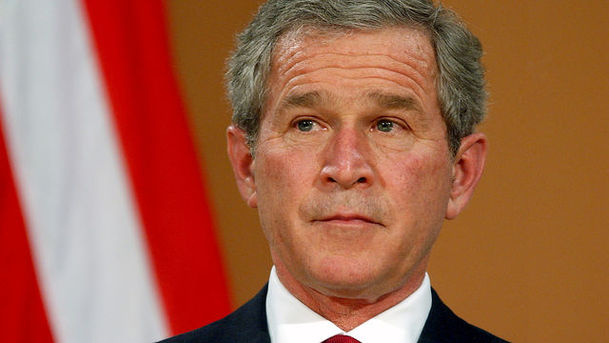
Archive on 4 - Bremner on Bush - A Final Farewell
Rory Bremner considers the rhetorical evolution of George W Bush, from gaffe-prone candidate to grandiose war president.
Details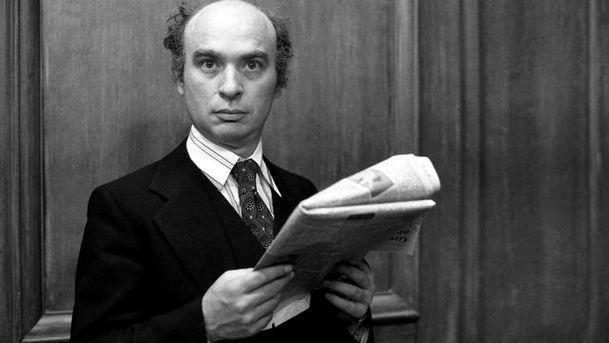
Archive on 4 - Capering With Ken Campbell
Ian McMillan explores the world of actor and director Ken Campbell, who died in 2008, and is given a tour of his Essex home by his daughter, Daisy.
Details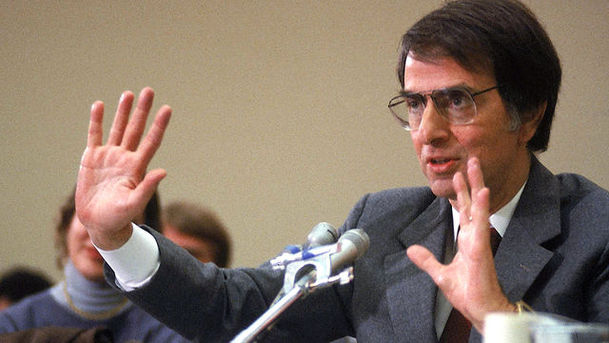
Archive on 4 - Carl Sagan - A Personal Voyage
Physicist and broadcaster Brian Cox presents a tribute to his science hero, Carl Sagan, the man who many people describe as the greatest populariser of science of all time.
Details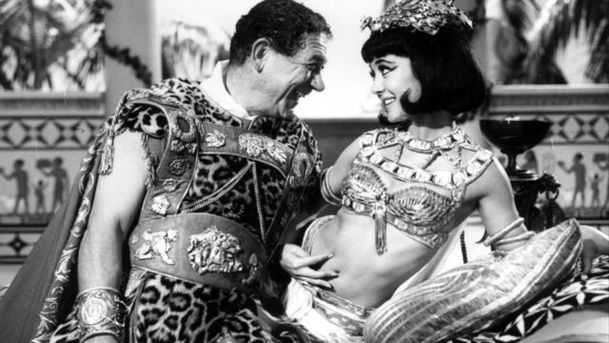
Archive on 4 - Carry On Britain
Carolyn Quinn looks at the Carry On films and asks what they tell us about British society between the late 1950s and the late 1970s.
Details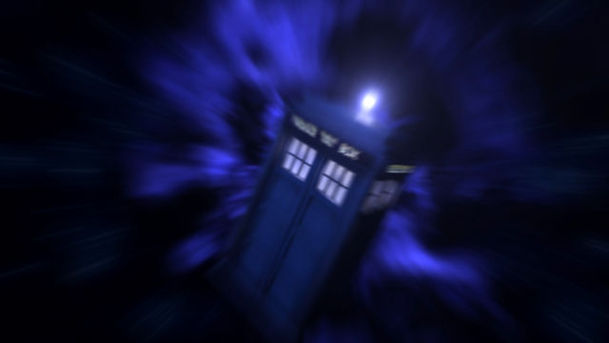
Archive on 4 - Doctor Who - The Lost Episodes
Shaun Ley investigates what happened to 108 missing episodes of Doctor Who from the 1960s, why the tapes were wiped and how dedicated fans hunted down copies of other episodes.
Details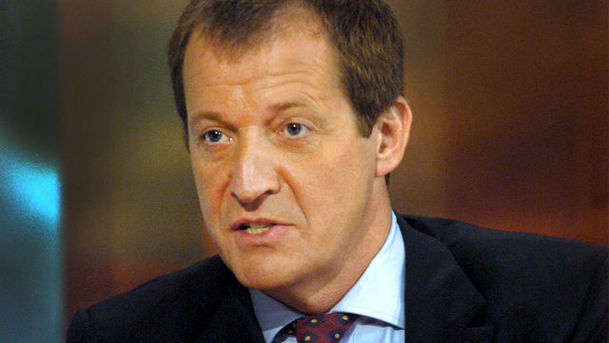
Archive on 4 - Dramatising New Labour
Professor Steven Fielding talks to Alastair Campbell, David Hare and others to assess how New Labour has been portrayed on stage and screen.
Details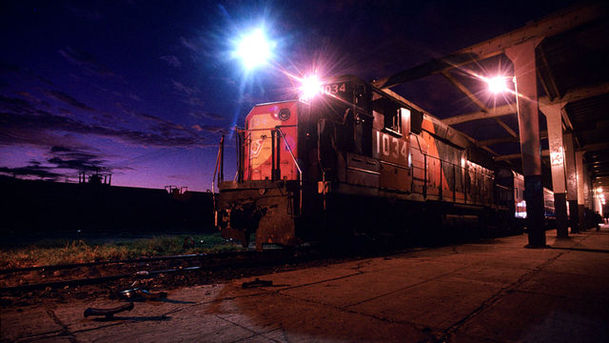
Archive on 4 - El Tren Fantasma
An atmospheric acoustic journey across the heart of Mexico from Pacific to Atlantic coast uses archive recordings to recreate a passenger service which no longer exists.
Details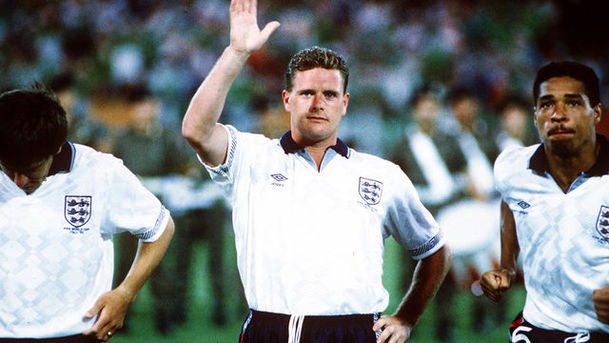
Archive on 4 - England Expects
Presenter David Goldblatt chronicles England's World Cup campaigns, and how through them England can trace its relationship with itself and the rest of the world.
Details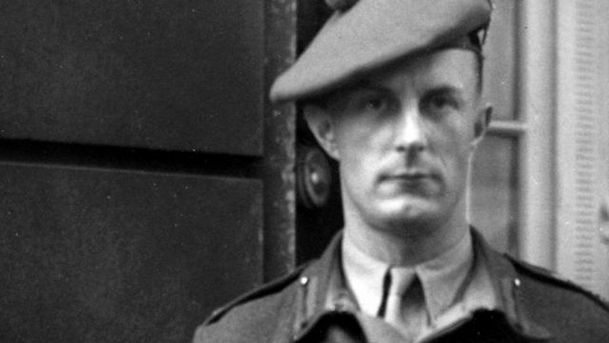
Archive on 4 - Fitzroy MacLean: To Russia with Love
Brian Wilson looks at the colourful life of Sir Fitzroy Maclean, the SAS soldier who was Churchill's man in the East and good friends with Marshal Tito.
Details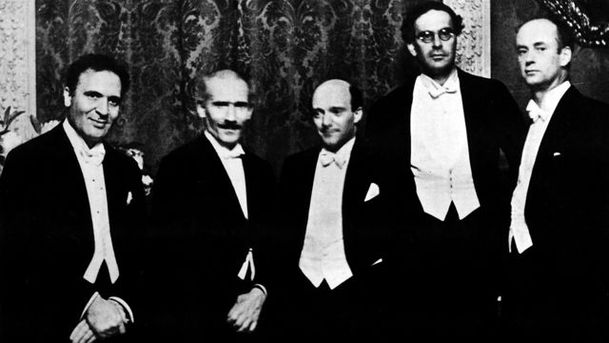
Archive on 4 - Five and the Fascists
Robert Giddings explores the confrontation between creativity and Fascism through decisions made by five leading European conductors who met at the Berlin Festival in 1929.
Details
Archive on 4 - Flexible Friend or Foe
How did a little sliver of plastic take over the world? Journalist Max Flint explores the arrival of the credit card into British life and the huge role it plays today.
Details
Archive on 4 - For One Night Illegally - The History of the Bootleg
Writer and broadcaster David Hepworth charts the story of secret recordings, artist out-takes and demo tapes that make up the world of the bootleg.
Details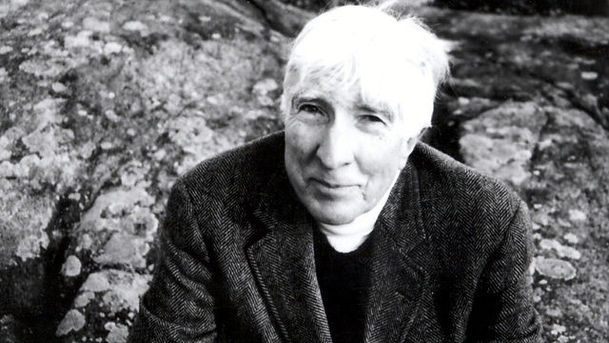
Archive on 4 - From Midpoint to Endpoint - Talking With John Updike
Mark Lawson traces the career of John Updike from 1969, when he came to international recognition, to a final interview recorded months before Updike's death in January 2009.
Details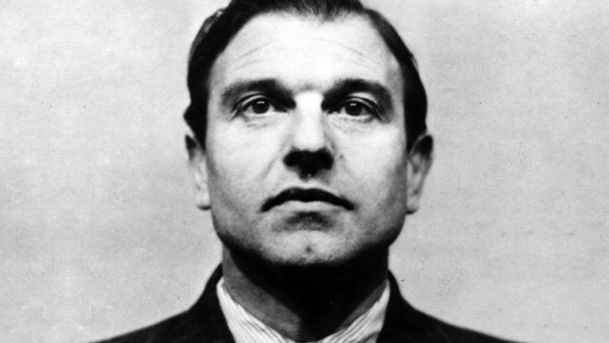
Archive on 4 - George Blake - The Confession
Former Panorama reporter Tom Bower introduces the documentary he made nearly in the late 1980s about Cold War double agent George Blake.
Details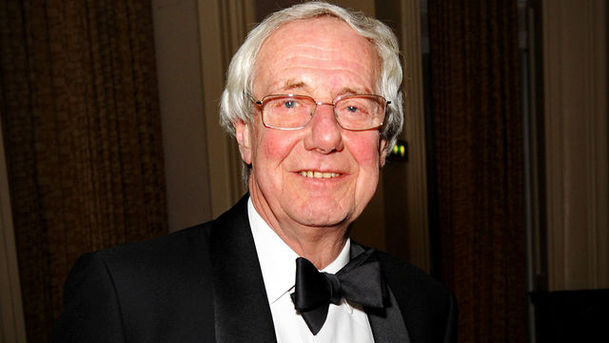
Archive on 4 - Going to the Flicks
Barry Norman on the changing experience of British cinema going over the last century
Details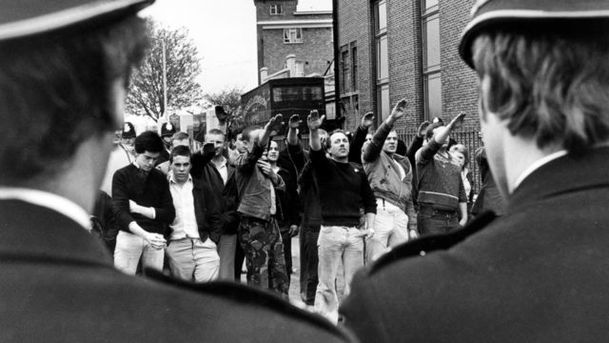
Archive on 4 - Hate Against Hope
Alan Dein hears the story of how London's East End Bangladeshi community 30 years ago found itself reliving the anti-racist struggles of the past.
Details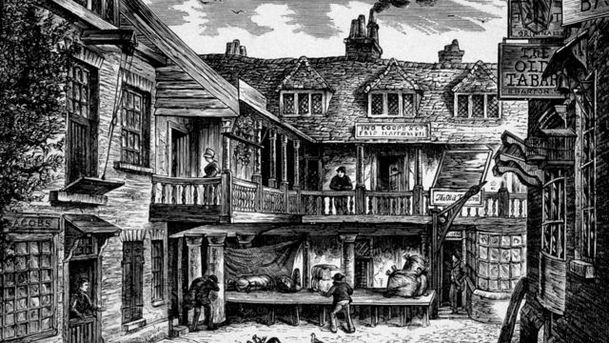
Archive on 4 - Hurry Up Please, It's Time
Robert Hanks presents an elegy for pubs in literature, and explores what the smoking ban, the gastro pub and the five quid pint are going to do to writing.
Details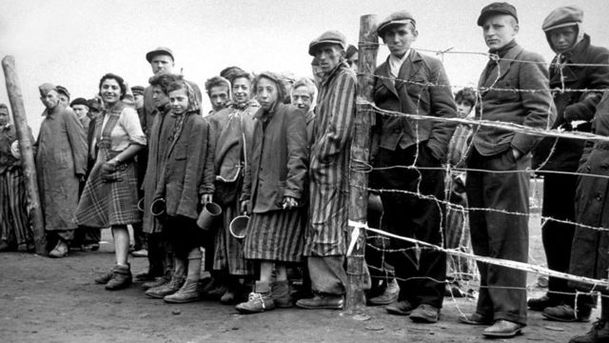
Archive on 4 - I Did Not Interview the Dead
In 1946 Dr David Boder journeyed through Europe recording the voices and immediate memories of survivors of the Nazi concentration and death camps. Alan Dein listens.
Details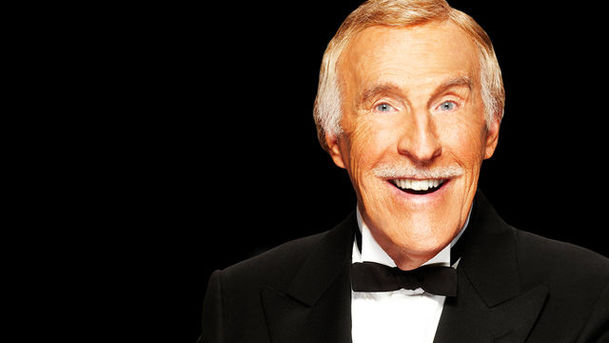
Archive on 4 - I'm in Charge
Bruce Forsyth and Paul Jackson visit the London Palladium which since Boxing Day 1910 has played host to stars such as Ella Shields, Whoopi Goldberg, Pinky and Perky, and George V.
Details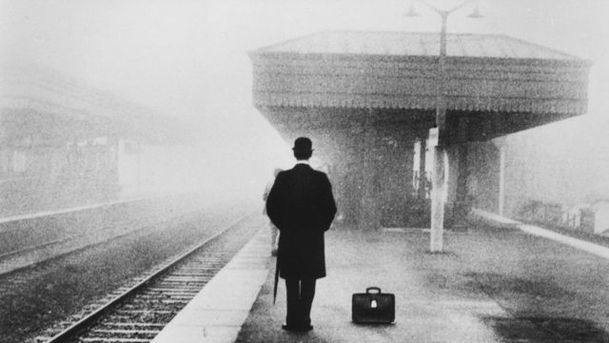
Archive on 4 - I'm On The Train
Acknowledging the romance and frustration of the suburban commuter, Ian Marchant captures the travel experiences over generations, as part of Radio 4's London Season.
Details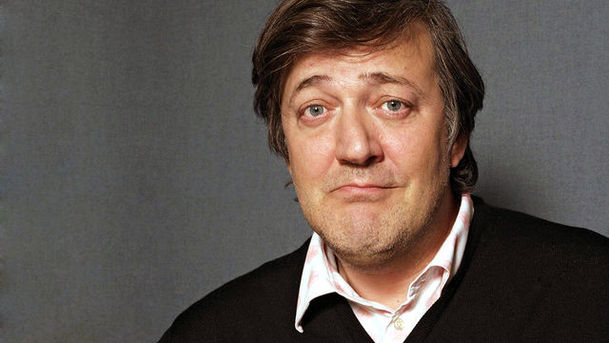
Archive on 4 - In the Beginning Was the Nerd
Stephen Fry recalls how, in the build-up to the year 2000, the world prepared itself to face a terrifying scare - The Millennium Bug.
Details
Archive on 4 - Island Dreams
Poet Gwyneth Lewis explores the idea of the island and island life, and the ways in which it continues to capture the British imagination.
Details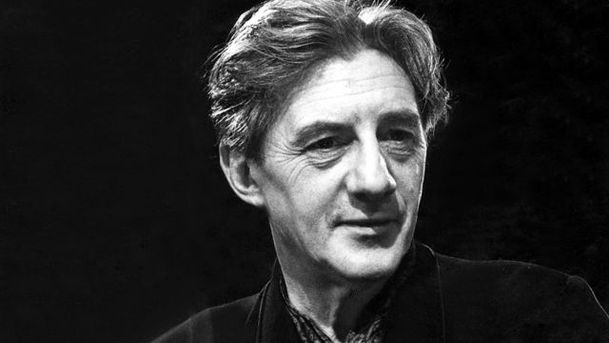
Archive on 4 - John Barbirolli - Angel of the North
James Naughtie remembers English conductor Sir John Barbirolli through recollections of colleagues and archive recordings.
Details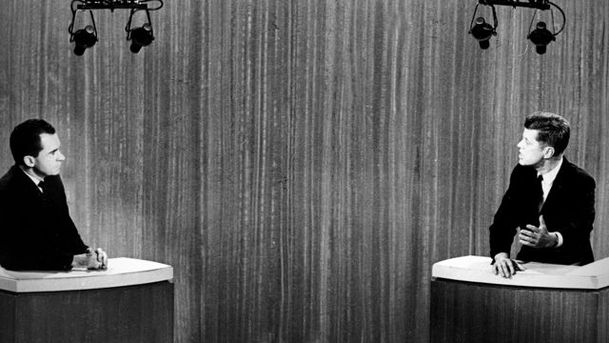
Archive on 4 - Leaders Under The Lights
Reeta Chakrabarti unearths memorable moments in presidential TV debates from the archives and asks what they can teach Britain's party leaders as they prepare to face each other.
Details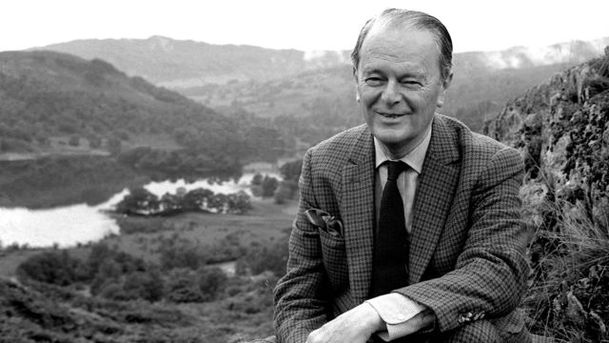
Archive on 4 - Lord Clark - Seeing Through The Tweed
Richard Weight reassesses Kenneth Clark and his landmark BBC TV series, Civilisation, which, he argues, was the culmination of a career that reveals much about 20th-century Britain.
Details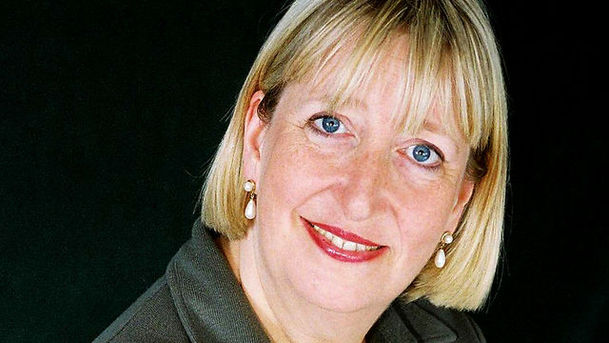
Archive on 4 - Lynne Truss - Did I Really Ask That?
Lynne Truss shares her personal treasure trove of interviews with world famous writers, including Arthur Miller, Tom Stoppard, Simon Gray, Athol Fugard and Anthony Minghella.
Details
Archive on 4 - Meeting Myself Coming Back: Series 1
Three high-profile figures, in conversation with John Wilson, replay their own sound archive and use it as a basis for a re-examination of their lives.
Details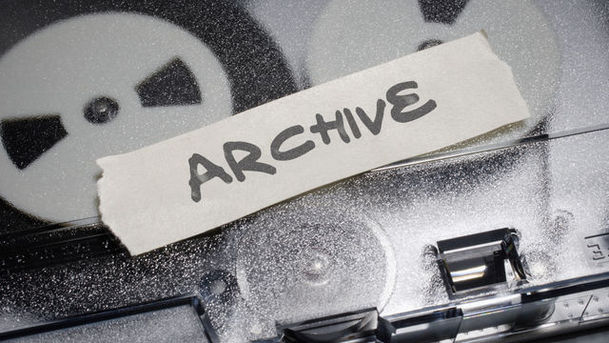
Archive on 4 - Meeting Myself Coming Back: Series 2
Series in which guests replay the sound archive of their lives.
Details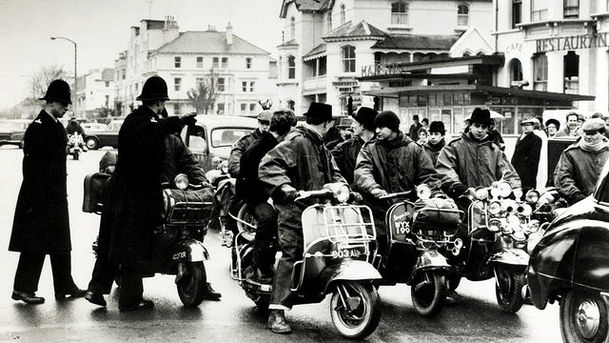
Archive on 4 - Mods!
Phil Daniels presents a look back at the Mod movement, exploring its beginnings in the Soho underground of the late 50s through to the seafront clashes with the Rockers in the 60s.
Details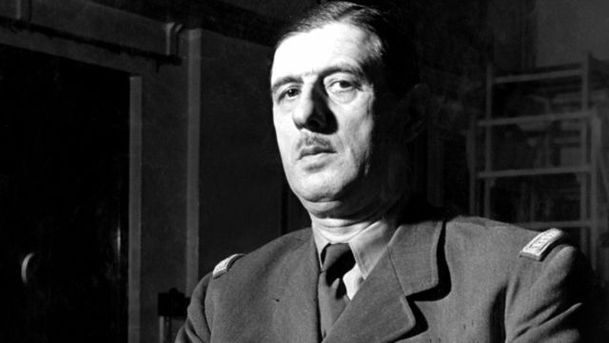
Archive on 4 - Monsieur Non
To mark the 70th anniversary of de Gaulle's wartime rallying broadcast from London, Julian Jackson profiles the enigmatic statesman whose dealings with Britain were never simple.
Details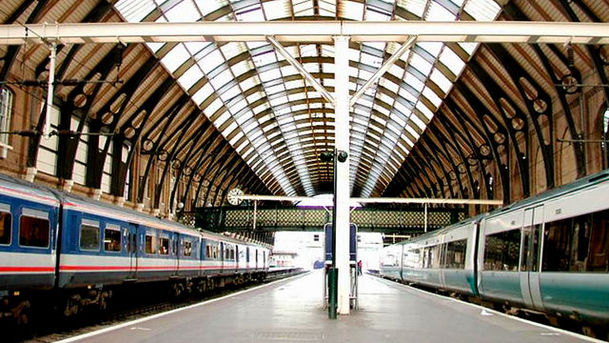
Archive on 4 - Nations of the Cross
Alan Dein hears true stories from those who live around London's King's Cross station
Details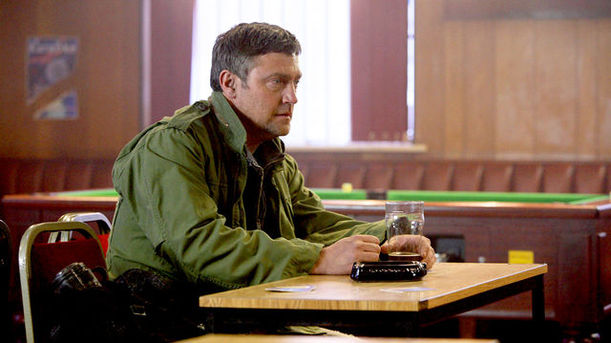
Archive on 4 - On Northern Men
Kay Mellor explores the way that northern English masculinities have been portrayed in British film and television.
Details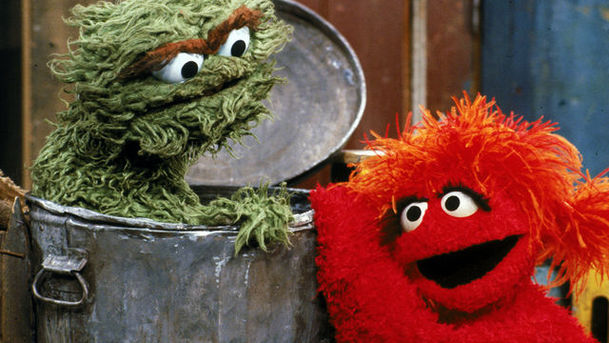
Archive on 4 - Open Sesame
Konnie Huq looks back at four decades of Sesame Street, the experimental American children's television show which mixed radical educational techniques with subversive humour.
Details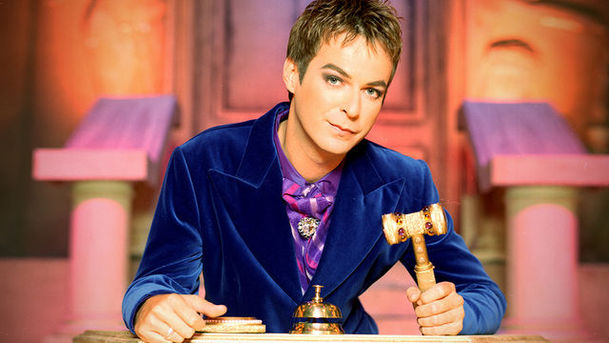
Archive on 4 - Open that Door: Gay Comedy in the Last 30 Years
Brian Cox presents a tribute to the genius of Richard Feynman, regarded as the greatest physicist since Einstein and one of science's most inspirational characters.
Details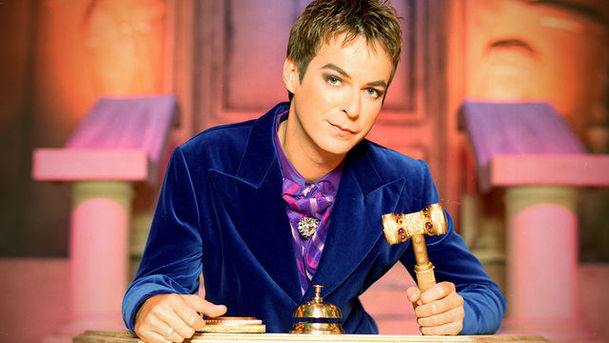
Archive on 4 - Open that Door: Gay Comedy in the Last 30 Years
Brian Cox presents a tribute to the genius of Richard Feynman, regarded as the greatest physicist since Einstein and one of science's most inspirational characters.
Details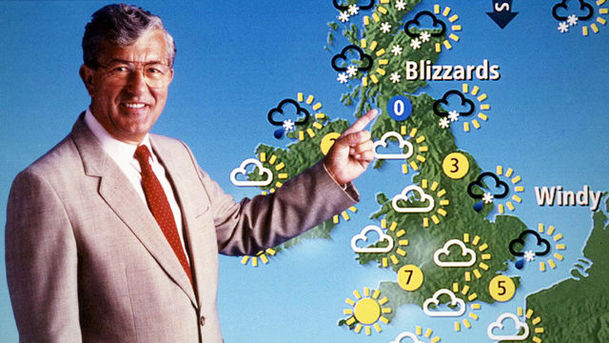
Archive on 4 - Our Obsession With Weather
Iain Sinclair mines the archives to find out why the seemingly mundane weather forecast has been an obsession for listeners and viewers since the early days of broadcasting.
Details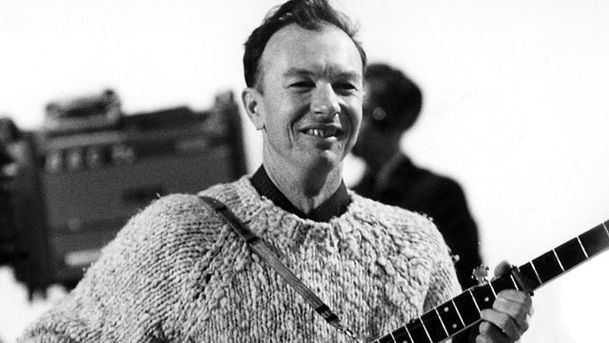
Archive on 4 - Pete Seeger at 90
Vincent Dowd celebrates the life and work of American folk singer and activist Pete Seeger, as he turns 90, and hears his views on a range of issues and his hopes for the future.
Details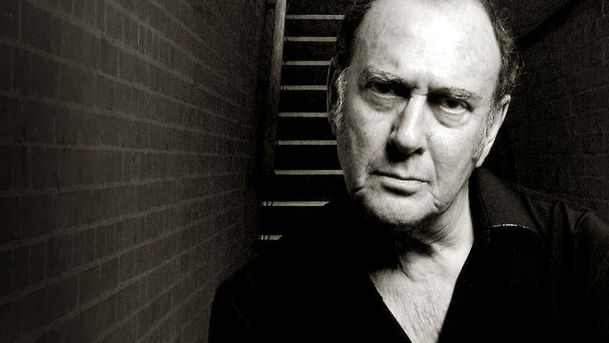
Archive on 4 - Pinter on Air
Ian Smith, author and friend of the late Harold Pinter, rediscovers the vital role that a series of successful radio and television dramas played in making Pinter's name.
Details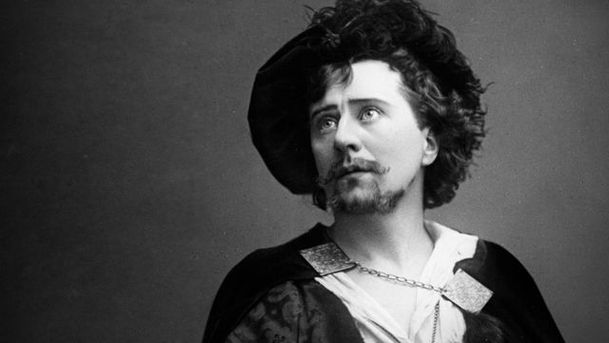
Archive on 4 - Playing the Dane
In anticipation of his own stage Hamlet in 2011, Michael Sheen looks back at classic productions of the play and the many different interpretations of an actor's most coveted role.
Details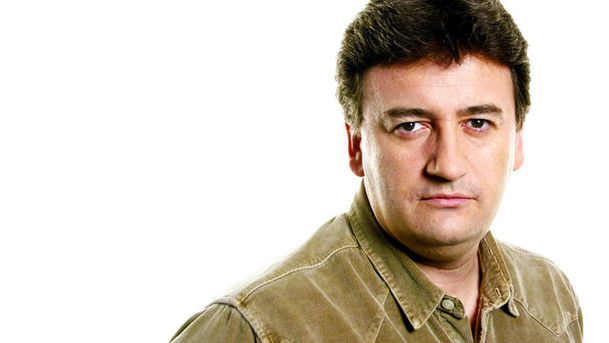
Archive on 4 - Please Give Generously
Fergal Keane looks at the media's relationship with charity organisations and their role in promoting the work of the third sector through vehicles such as the Radio 4 Appeal.
Details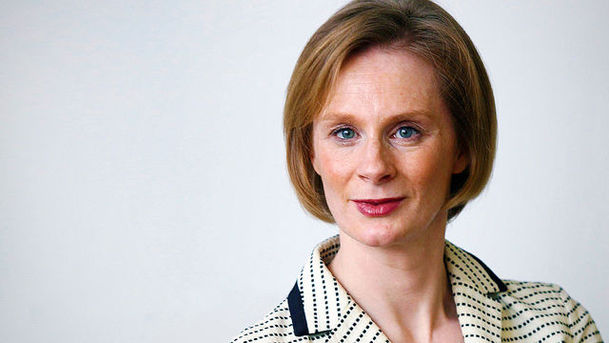
Archive on 4 - Political Patriarchs
The influence of the political father has long been a defining aspect of politics, but Anne McElvoy asks what impact this has on Westminster today.
Details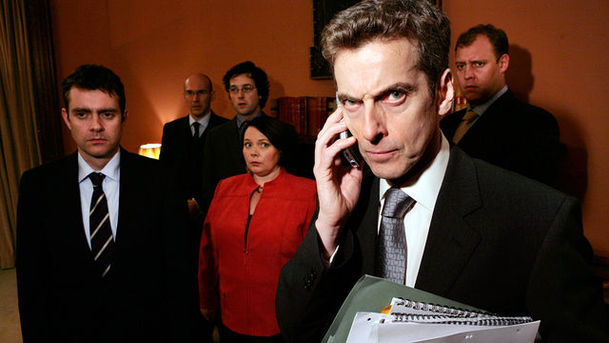
Archive on 4 - Politics Between the Covers
Mark Lawson delves into the seamier side of politics to consider the fascinating line where fact meets fiction.
Details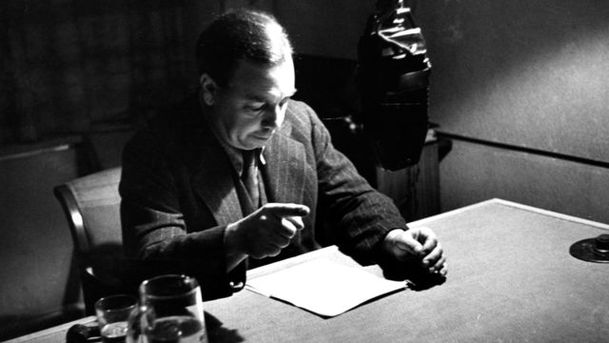
Archive on 4 - Priestley's Postscripts
Martin Wainwright explores the hugely popular WWII broadcasts of JB Priestley, the 'voice of Britain' during the darkest days of the war, and why he was taken off air.
Details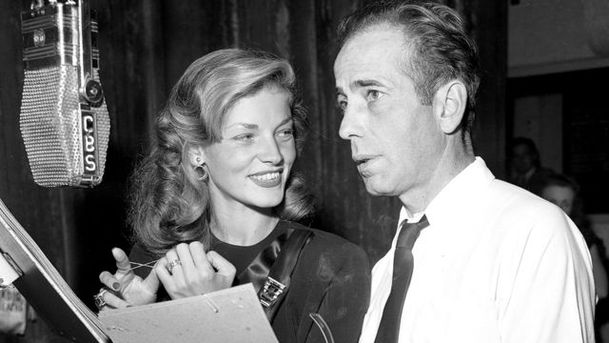
Archive on 4 - Radio Hollywood
Sponsored by a well-known 'toilet soap', the Lux Theater brought the silver screen to the airwaves, with specially adapted versions of Hollywood films.
Details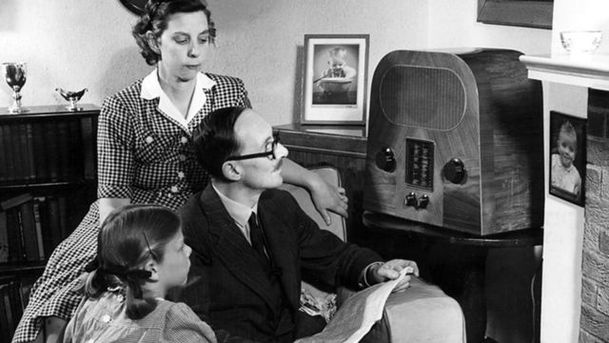
Archive on 4 - Radio Sales
Radio presenter Brian Hayes examines the history of radio advertising in the UK and how it has evolved since its earliest days on Radio Luxembourg in the interwar years.
Details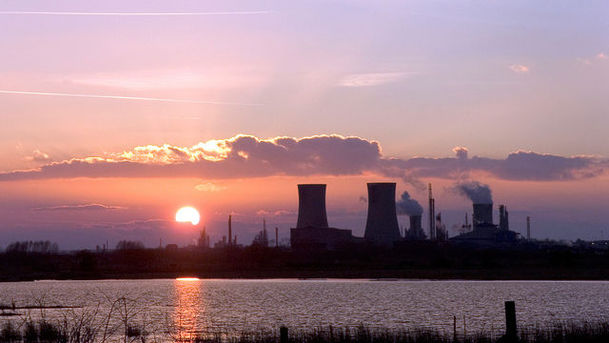
Archive on 4 - Redcar: Made of Steel
As Teesside's last blast furnace is mothballed, Felicity Finch - who plays Ruth in The Archers - returns to her home town of Redcar to mark the end of 170 years of steelmaking.
Details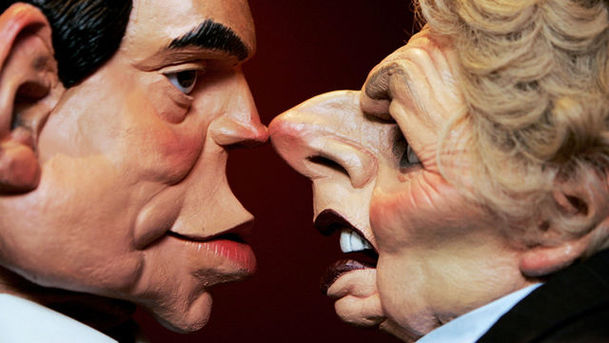
Archive on 4 - Satire: The Great British Tradition
Co-creator of Spitting Image Roger Law celebrates the evolution of satire in Britain, from early drawings of gentlemen misbehaving to today's sharp comedy.
Details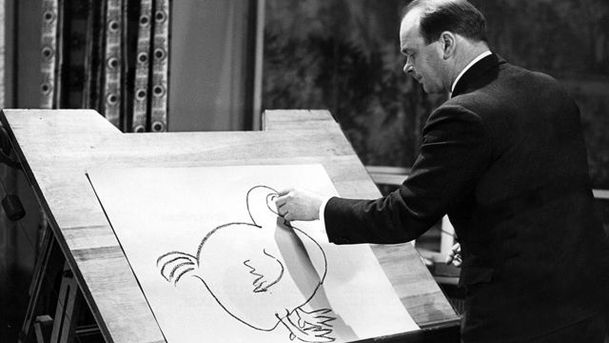
Archive on 4 - Scott of Slimbridge
Frank Gardner reflects on the career of Sir Peter Scott - ornithologist, author, painter, sportsman, war hero and broadcaster, whose television programme Look ran for over 25 years.
Details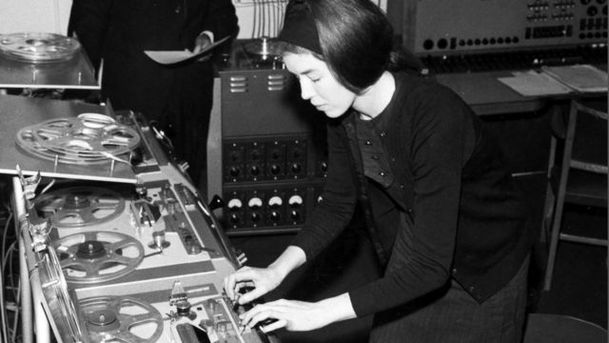
Archive on 4 - Sculptress of Sound: The Lost Works of Delia Derbyshire
Broadcaster and Doctor Who fan Matthew Sweet travels to Manchester University to learn more about the woman who realised Ron Grainer's original theme to Doctor Who.
Details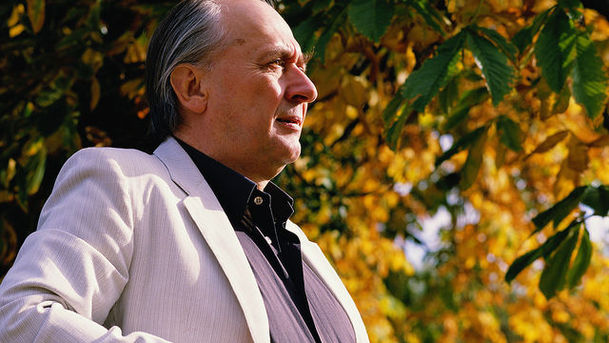
Archive on 4 - Self on Ballard
Will Self explores the imagination and work of writer JG Ballard, who he came to know in his final years, drawing on the many interviews that Ballard gave during his working life.
Details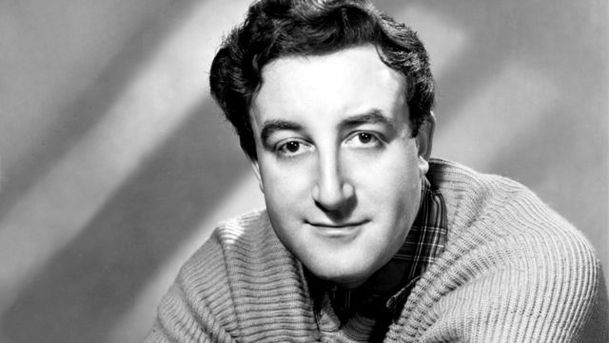
Archive on 4 - Sellers in the Attic
Comedy writer and historian Glenn Mitchell examines exclusive and lesser-known recordings of Peter Sellers, and reveals a lighter side to the life of one Britain's comic legends.
Details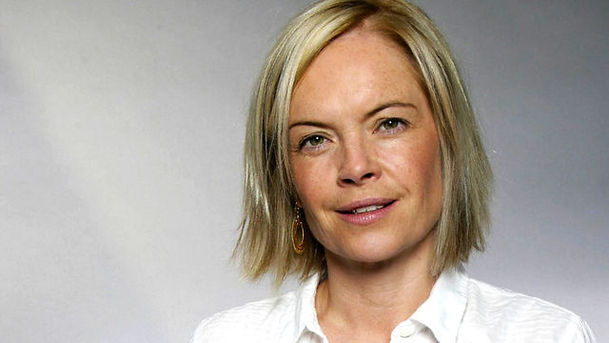
Archive on 4 - Sex in the Classroom
Mariella Frostrup, mother and advice columnist, looks at how sex education has been tackled in British schools over the last century. Why are we still getting it so wrong?
Details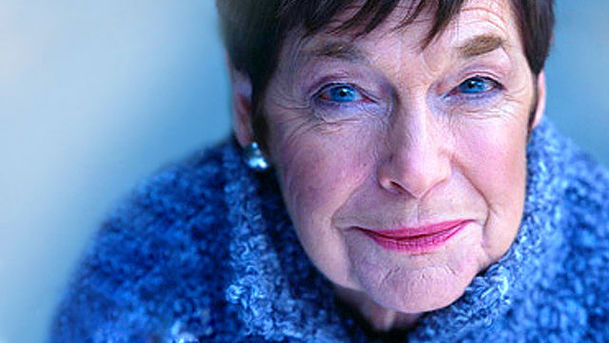
Archive on 4 - So Much Older Then
Journalist Katharine Whitehorn, now in her 80s, reviews archive recordings that span her lifetime in order to arrive at some conclusions about old age.
Details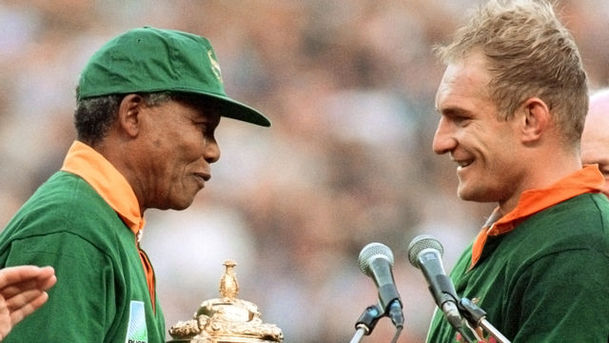
Archive on 4 - Soccer, Springboks and Segregation
As South Africa prepares to host the 2010 World Cup, Allan Little examines the role that sport has played in the republic's politics and in forming its international reputation.
Details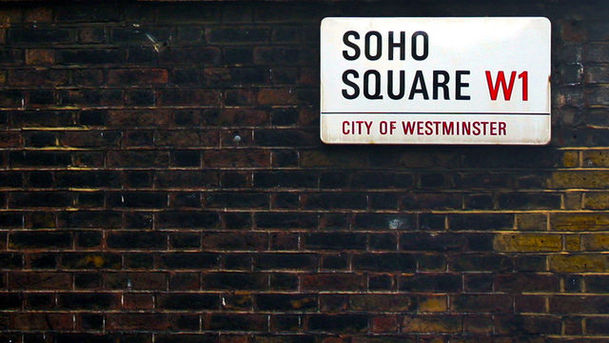
Archive on 4 - Soho
The singer Suggs returns to Soho, where he spent much of his unconventional childhood, to find out how the community functions today and whether it is still a source of inspiration.
Details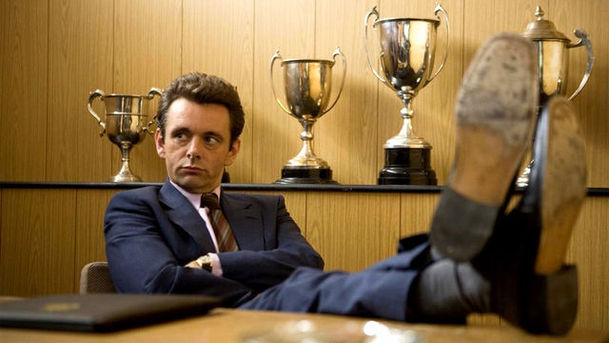
Archive on 4 - Sport on Film
Film writer and scholar Colin Shindler searches the archives for lessons in the alchemical business of capturing and preserving the drama and spectacle of sport in film.
Details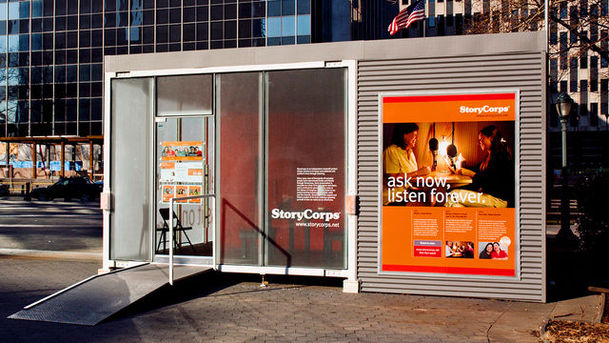
Archive on 4 - Tell Me A StoryCorps
Writer Simon Garfield tells the story of StoryCorps, which has seen thousands of ordinary Americans record their responses to the simple question, 'Tell me about your life'.
Details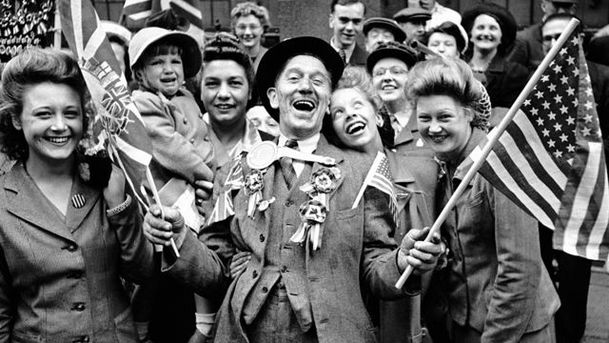
Archive on 4 - The Anniversary Anniversary
Dominic Sandbrook scrutinises our obsession with anniversaries, and finds a cultural hunger lurking behind the simple excuse for telling old stories.
Details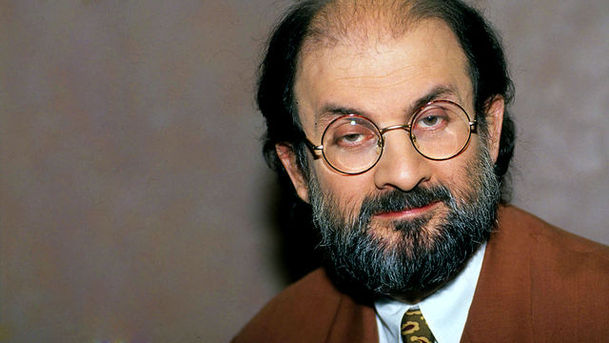
Archive on 4 - The Book Burners
20 years since the fatwa issued against Salman Rushdie, Mike Wooldridge finds out how those who took part in the protests and burned the book feel about it now.
Details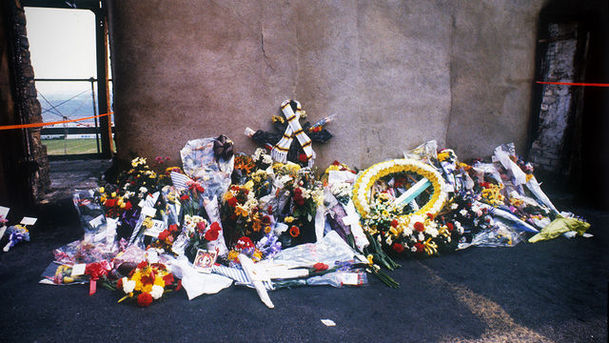
Archive on 4 - The Bradford Fire: A Day That Will Live With Me Forever
Gabby Logan asks what lessons have been learnt since the worst fire disaster in British football history, at Bradford City's Valley Parade stadium in 1985.
Details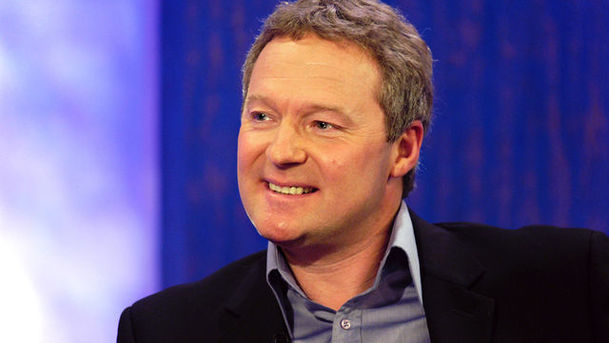
Archive on 4 - The Character Crunch
Rory Bremner laments the loss of big personalities in British politics. He asks if character is now considered a liability and if we are in fact going through a 'character crunch'?
Details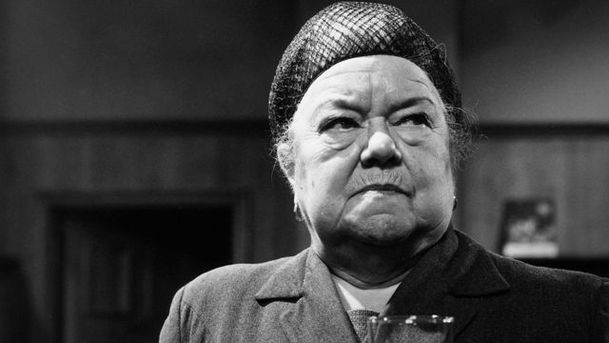
Archive on 4 - The Death of the Battleaxe
Theatre director Jude Kelly argues the case for The Battleaxe character, once a staple of British drama but now just a memory.
Details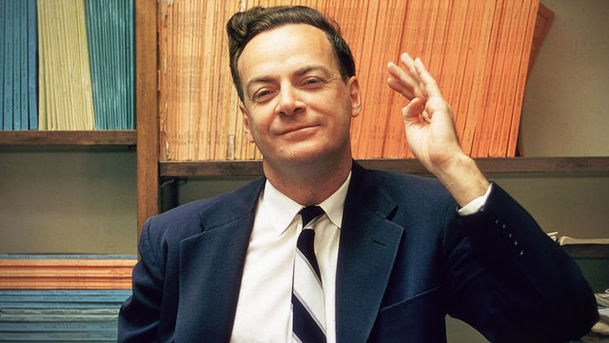
Archive on 4 - The Feynman Variations
Brian Cox presents a tribute to the genius of Richard Feynman, regarded as the greatest physicist since Einstein and one of science's most inspirational characters.
Details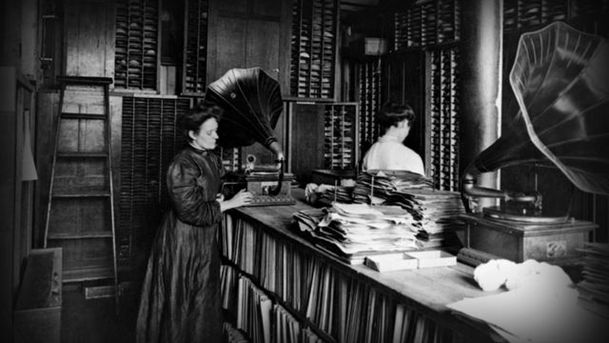
Archive on 4 - The First A and R Man
Paul Gambaccini uncovers the story of Fred Gaisberg, the music collector, technician and entrepreneur who brought recording to Britain over 100 years ago.
Details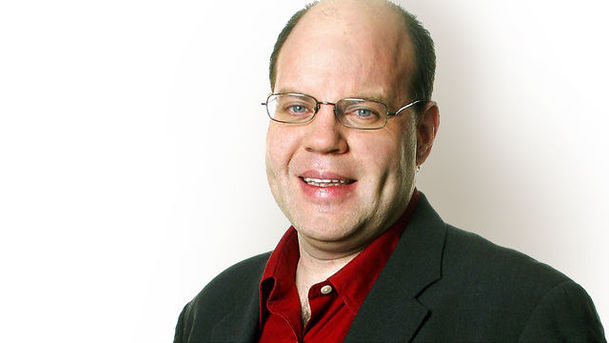
Archive on 4 - The ITV Story
Over the years, one of ITV's unique features has been a regional structure which no longer exists. Mark Lawson examines the history of Yorkshire Television.
Details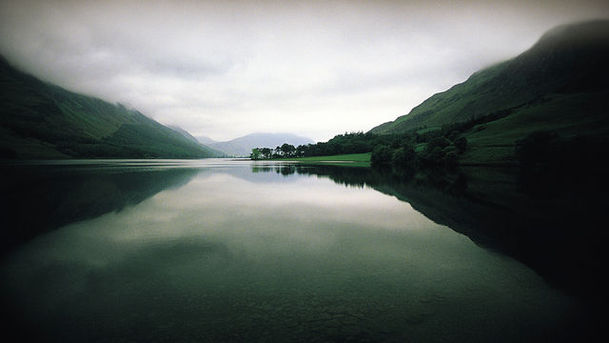
Archive on 4 - The Man Behind the Mountains
The Man Behind the Mountains. 80 years ago author and fell walker Alfred Wainwright first visited the Lake District. Eric Robson re-evaluates this often misunderstood character.
Details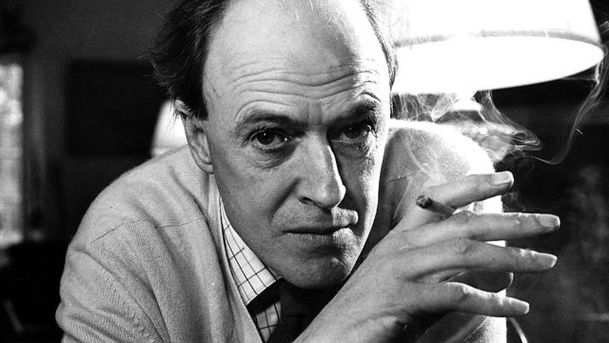
Archive on 4 - The Many Lives of Roald Dahl
Sophie Dahl looks at the life, writing and passions of her grandfather, the children's author Roald Dahl, through the voices of himself, his family and those who knew him.
Details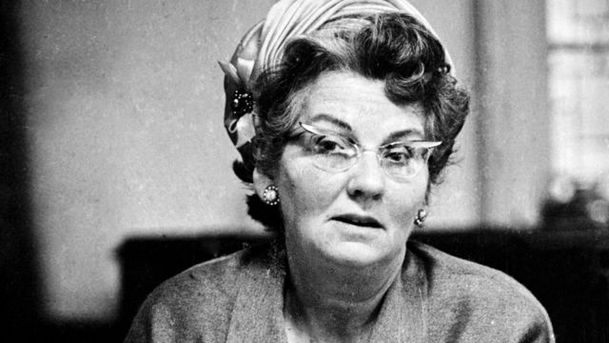
Archive on 4 - The Mary Whitehouse Effect
Joan Bakewell examines the influence of Mary Whitehouse's moral campaign and speaks to some of those she affected.
Details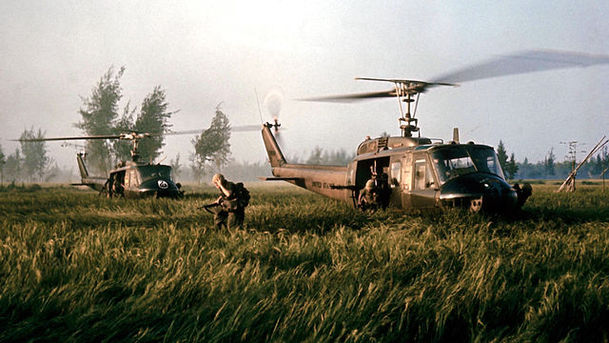
Archive on 4 - The My Lai Tapes
Robert Hodierne reveals the truth about the infamous My Lai massacre of 16 March 1968, based on the transcript of a Pentagon enquiry that was suppressed.
Details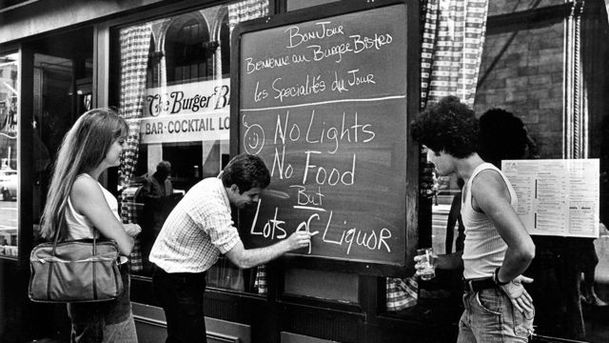
Archive on 4 - The New York '77 Blackout
An exploration of the blackout on 13 July 1977 that plunged a sweltering New York City into chaos as the lights went out at 9.27pm.
Details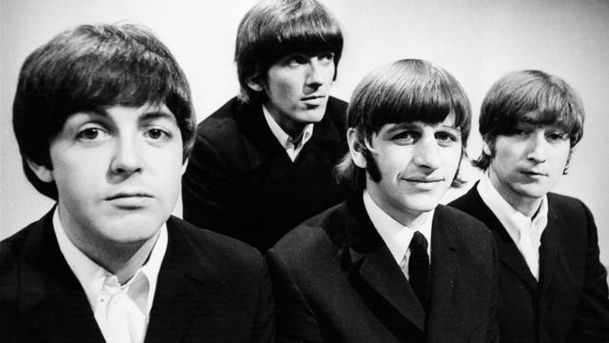
Archive on 4 - The Split Up (and the Almost Inevitable Reunion)
To mark the 40th anniversary of the Beatles disbanding, Rev Richard Coles, whose band The Communards split up, examines how bands through the decades have decided to call it a day.
Details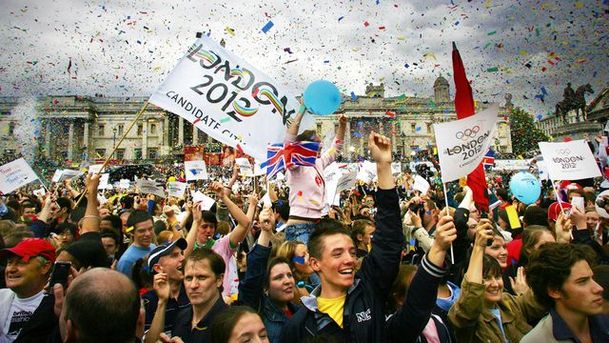
Archive on 4 - The Summer That Changed London
Kirsten Lass uses archive and new interviews to recall the dramatic events in the British capital in the summer of 2005, as part of Radio 4's London Season.
Details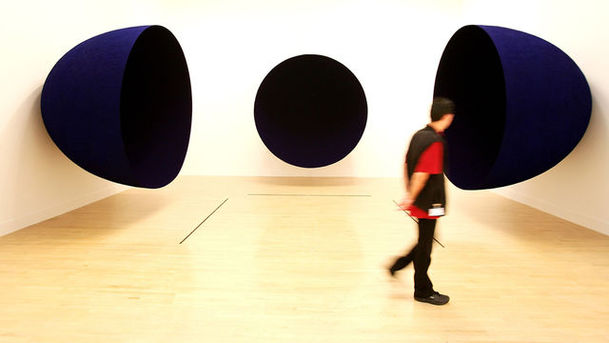
Archive on 4 - The Turner Prize Turnaround
As the Turner Prize reaches its 25th year, Waldemar Januszczak considers its transformation from a widely criticised award to a much anticipated and controversial annual spectacle.
Details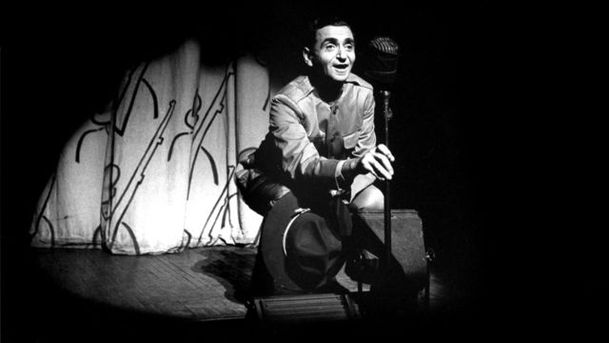
Archive on 4 - This is the Army Mr Jones
John Barrowman tells the story of Irving Berlin's army show, This is the Army, which came to bomb-ravaged London in 1943 before setting out on a world tour to raise army morale.
Details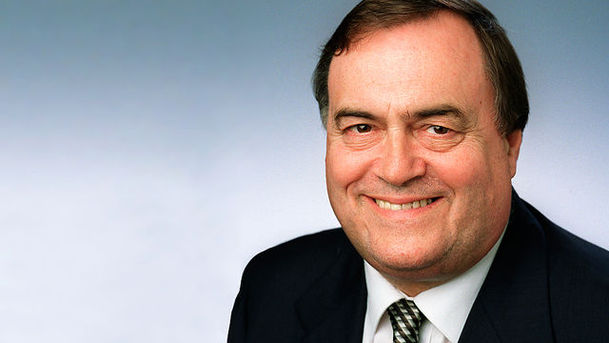
Archive on 4 - Under the Red Duster
John Prescott MP recalls his career, from steward to Deputy Prime Minister, and through archive, poetry and new interviews tells the little-known story of the British Merchant Navy.
Details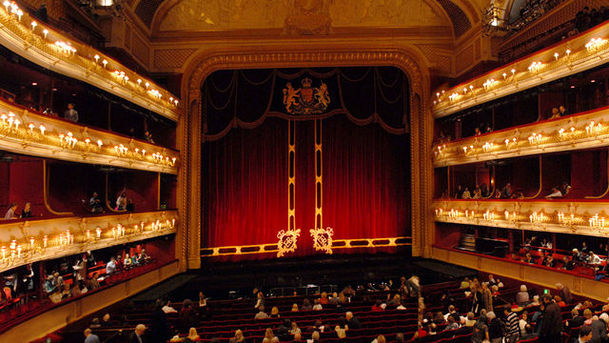
Archive on 4 - Unsung Heroes
What's life like in an orchestra pit? Sarah Lenton explores the Royal Opera House archive to find out what the glittering world of opera and ballet looks like from below.
Details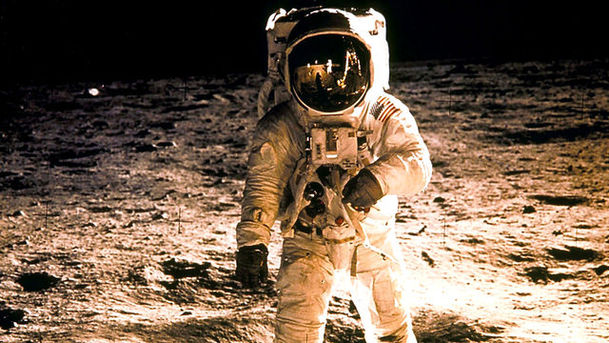
Archive on 4 - Walking on the Moon
To mark the fortieth anniversary of the moon landing in July 1969, Buzz Aldrin relives the dangerous and dramatic moments of the final descent to the lunar surface.
Details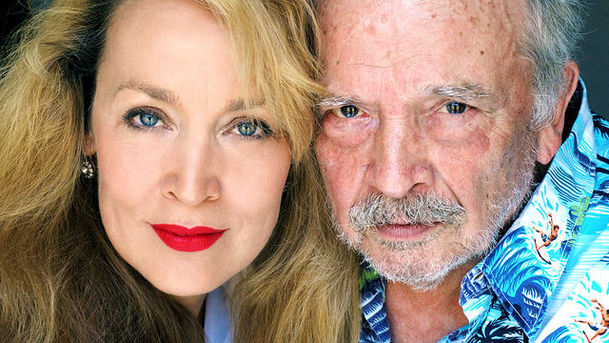
Archive on 4 - When Bailey Met Warhol
Former Andy Warhol muse Jerry Hall talks to photographer David Bailey about his relationship with Andy Warhol and the infamous documentary he made about the pop artist in 1973.
Details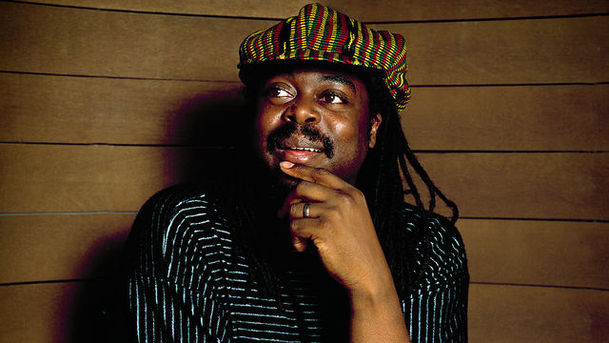
Archive on 4 - When Courtney Met Chris
Courtney Pine talks to jazz trombonist Chris Barber about his life's work and how his enthusiasm for American blues inspired a new generation of musicians.
Details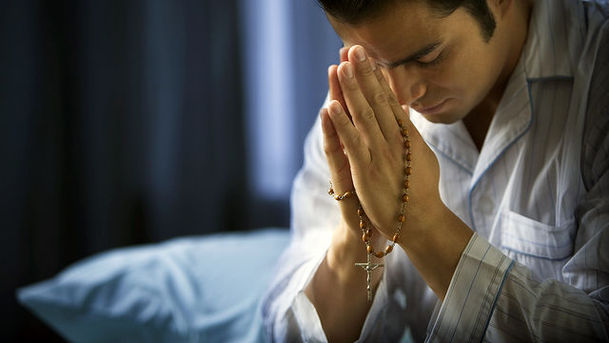
Archive on 4 - With God on Our Side
Amid the horrors of war, what makes one man turn to God and another to atheism? Former Bishop of Edinburgh Richard Holloway explores what happens to faith when life is on the line.
Details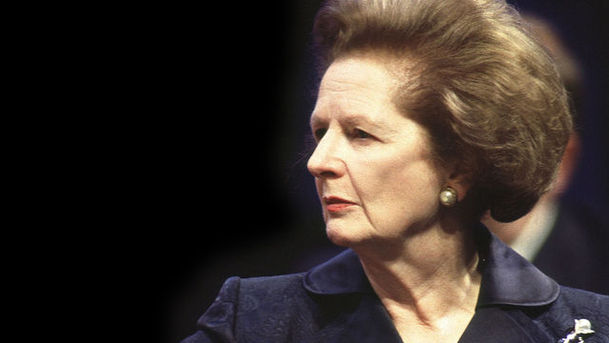
Archive on 4 - Working for Margaret
Using archive material, Matthew Parris finds out from former staff, ministers, civil servants, speechwriters and advisors what Margaret Thatcher was like to work for.
Details